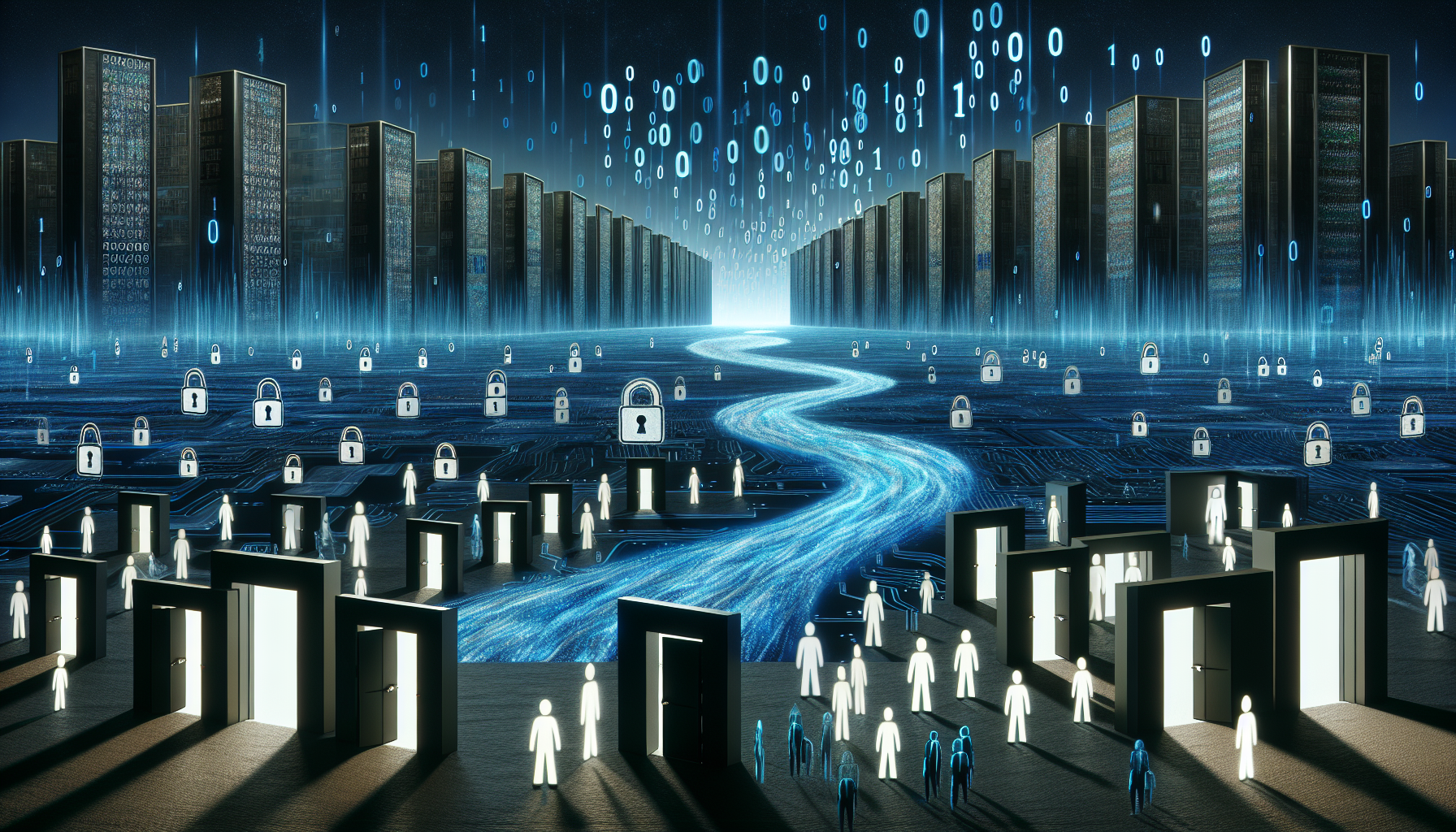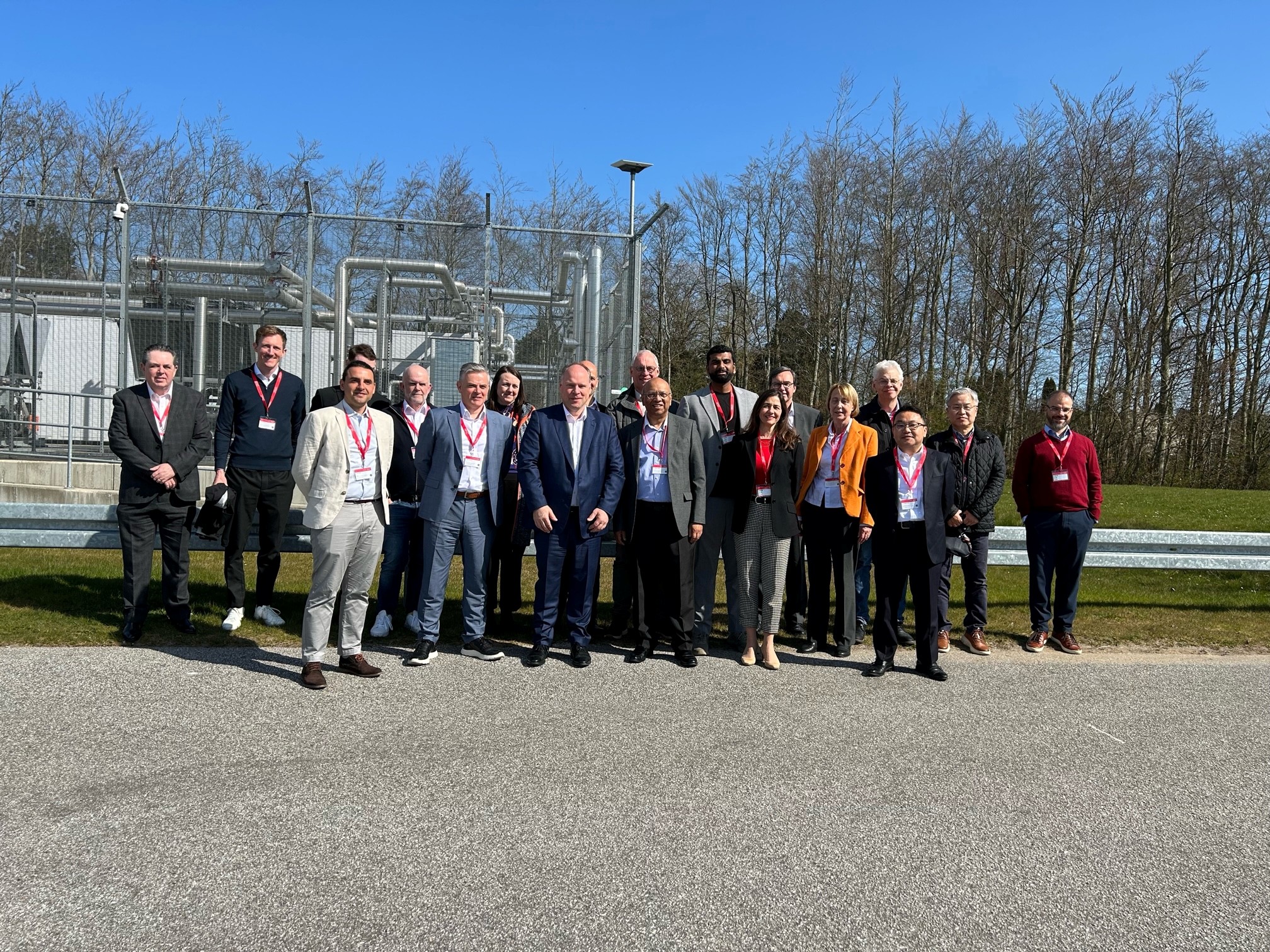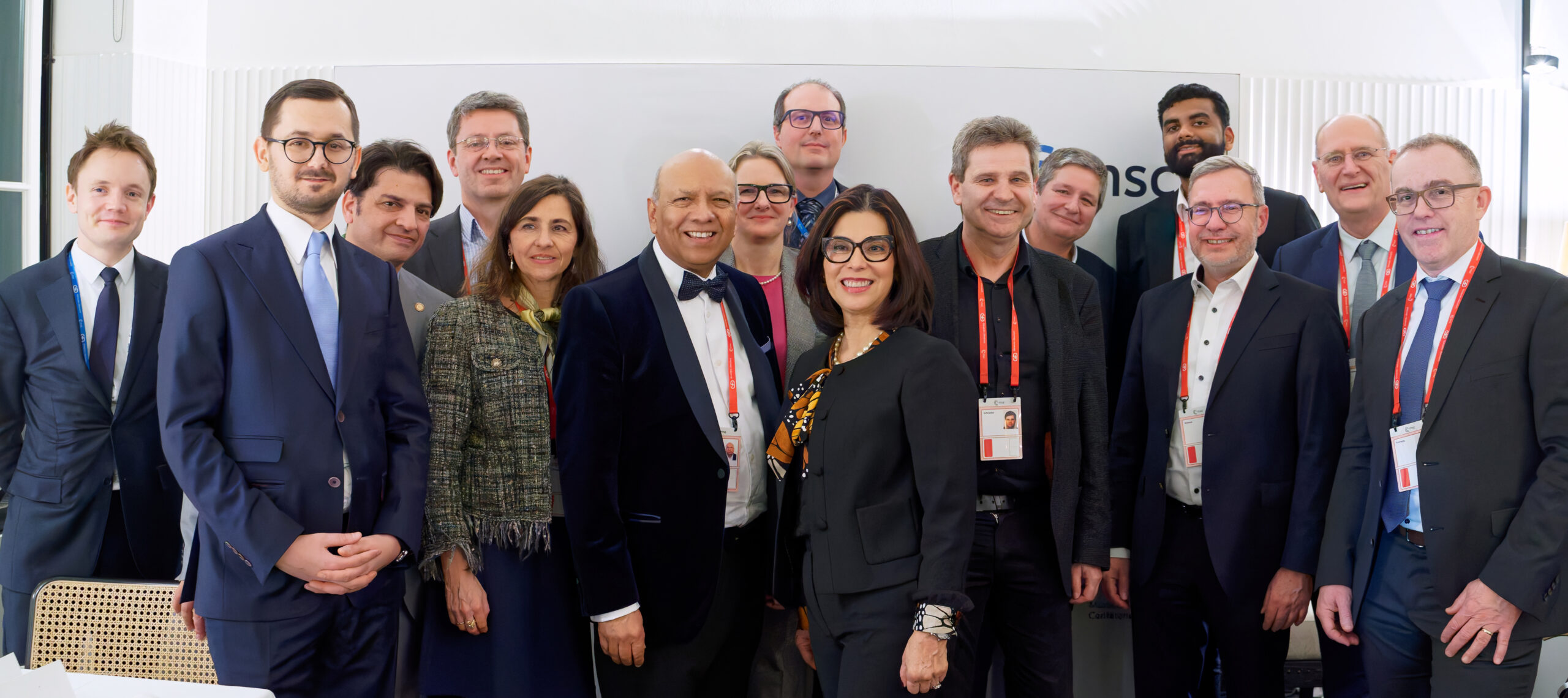On June 5th, the Charter of Trust convened a high-level workshop dedicated to one of the most pressing challenges in cybersecurity: how to train, attract, and retain the next generation of cyber professionals.
Bringing together representatives from Charter of Trust Partners and external organizations, the session focused on enhancing the Cyber Talent Academy, a growing initiative that is already demonstrating real impact. The workshop was a space for deep exchange, shared purpose, and forward-looking collaboration between cybersecurity and HR professionals.
One key theme ran through every conversation: the cyber skills gap continues to widen, and traditional recruitment methods are no longer enough. To meet growing demand, we must fundamentally rethink how we discover, train, and support talent.
A New Approach to Cyber Talent
The Cyber Talent Academy is emerging as a powerful model for change. By offering alternative pathways into cybersecurity, beyond conventional educational and career tracks, it opens opportunities to individuals from a range of academic, cultural, and professional backgrounds. Participants agreed that the programme holds strong potential for expanding the talent pipeline, increasing diversity, and making cybersecurity more inclusive and resilient.
The workshop discussions underlined several critical insights:
- Relying solely on established recruitment channels will not close the cyber talent gap.
- Tapping into overlooked talent pools, through inclusive outreach, training, and mentoring, creates real business value and aligns with corporate social responsibility goals.
- Stronger collaboration between cybersecurity and HR teams is essential, particularly when it comes to structuring mentorship, supporting life-long learning, and designing modern career pathways.
- Initiatives like the Cyber Talent Academy are already showing higher retention and greater team innovation in participating organizations.
“Attracting, retaining, and developing cybersecurity talent is a challenge faced by nearly every organization today,” says Dr. Sumit Chanda, Co-Chair of the Charter of Trust and COO Group Security & Business Lines CISO at Atos. “The Charter of Trust Cyber Talent Academy offers a bold and innovative response to this challenge.” Dr. Chanda further emphasizes the power of collaboration, between businesses, educators, and governments, as essential to closing the cyber skills gap. He adds, “Expanding access to cybersecurity training, especially for underrepresented communities, isn’t just the right thing to do, it’s smart business. Diverse perspectives are vital to building resilient and secure systems.”
Looking Ahead
This workshop was just the beginning. The energy, expertise, and ideas shared on June 5th are shaping the next phase of the Cyber Talent Academy, and informing how we support our partners in building stronger, more inclusive cybersecurity teams. We’re excited to continue this journey and will be sharing updates on upcoming developments.
Stay tuned. The future of cybersecurity talent is collaborative, diverse, and full of potential.


PREVIOUS POST
3rd CyberTrust Talk - Digital Omnibus & Trust - What it Means for Business in Europe?
NEXT POST
Collaboration Week 2025 in Denmark

You may also like

Collaboration Week 2025 in Denmark
Collaboration Week 2025: Strengthening Bonds, Shaping the Future
Charter of Trust partners unite in Denmark for a three-day deep dive into cybersecurity collaboration.
Collaboration Week 2025 brought together representatives from all Charter of Trust member organizations for an intensive three-day summit hosted in Denmark. This event serves as a cornerstone of our alliance—an opportunity to connect, align, and advance our shared mission of building a safer digital world.
This year’s agenda was designed to elevate our collective efforts in tackling today’s most urgent cybersecurity challenges. From artificial intelligence and emerging technologies to supply chain security, harmonized regulations, security-by-default practices, and future-focused education and advocacy, the sessions sparked meaningful dialogue and strategic alignment across working groups.
What emerged from these discussions was a powerful reminder: coordinated, purpose-driven collaboration is essential to building and sustaining digital trust. The impact of our joint efforts continues to grow as we share expertise, synchronize our actions, and lead by example.
A heartfelt thank you to Danfoss for hosting this year's event and offering an inspiring behind-the-scenes tour of their data centre. Their hospitality and commitment to innovation set the perfect tone for our discussions.
Charter of Trust partners unite in Denmark for a three-day deep dive into cybersecurity collaboration.
Collaboration Week 2025 brought together representatives from all Charter of Trust member organizations for an intensive three-day summit hosted in Denmark. This event serves as a cornerstone of our alliance—an opportunity to connect, align, and advance our shared mission of building a safer digital world.
This year’s agenda was designed to elevate our collective efforts in tackling today’s most urgent cybersecurity challenges. From artificial intelligence and emerging technologies to supply chain security, harmonized regulations, security-by-default practices, and future-focused education and advocacy, the sessions sparked meaningful dialogue and strategic alignment across working groups.
What emerged from these discussions was a powerful reminder: coordinated, purpose-driven collaboration is essential to building and sustaining digital trust. The impact of our joint efforts continues to grow as we share expertise, synchronize our actions, and lead by example.
A heartfelt thank you to Danfoss for hosting this year's event and offering an inspiring behind-the-scenes tour of their data centre. Their hospitality and commitment to innovation set the perfect tone for our discussions.
Read more
April 08, 2025
•

Thematic Dinner at MSC 2025
Strengthening Global Cybersecurity: Charter of Trust’s Thematic Dinner at MSC
At this year’s Munich Security Conference, the Charter of Trust hosted its annual Thematic Dinner, focusing on the theme: “From Cyber Fences to Defences: Reversing Cyber Policy Fragmentation.”
With cybersecurity at the forefront of global security discussions, the event brought together high-ranking representatives from NATO, the European Union Agency for Cybersecurity (ENISA), the European External Action Service, national cybersecurity authorities, military leaders, and parliamentary officials. Their expertise contributed to a series of insightful discussions on strengthening international cyber resilience.
Key Takeaways from the Discussion
The increasing threat of cyber-attacks and disinformation poses a significant risk to economies and democracies. There is an urgent need for a coordinated and robust global response to mitigate these threats and establish clear consequences for malicious cyber activities.
Public-private cooperation plays a crucial role in cyber defence. The private sector possesses essential technological capabilities that must be leveraged to enhance the security of information systems, economic infrastructure, and democratic institutions.
Artificial intelligence is emerging as a critical battleground in cybersecurity. Protecting critical infrastructure with quantum-cryptographic security will be essential to counter evolving cyber threats effectively.
This event marked the conclusion of an exceptionally productive month for the Charter of Trust, which included:
This dinner was the perfect end for a very successful month in which the Charter of Trust held its Board of Directors meeting electing new co-chairs, the Security by Default working group published its sixth report (available on our website) and held a high-level panel discussion at Hashtag#MCSC, and several CISOs and CSOs from the Charter of Trust Partners published a playbook talking about cybersecurity and hybrid threats.
At this year’s Munich Security Conference, the Charter of Trust hosted its annual Thematic Dinner, focusing on the theme: “From Cyber Fences to Defences: Reversing Cyber Policy Fragmentation.”
With cybersecurity at the forefront of global security discussions, the event brought together high-ranking representatives from NATO, the European Union Agency for Cybersecurity (ENISA), the European External Action Service, national cybersecurity authorities, military leaders, and parliamentary officials. Their expertise contributed to a series of insightful discussions on strengthening international cyber resilience.
Key Takeaways from the Discussion
The increasing threat of cyber-attacks and disinformation poses a significant risk to economies and democracies. There is an urgent need for a coordinated and robust global response to mitigate these threats and establish clear consequences for malicious cyber activities.
Public-private cooperation plays a crucial role in cyber defence. The private sector possesses essential technological capabilities that must be leveraged to enhance the security of information systems, economic infrastructure, and democratic institutions.
Artificial intelligence is emerging as a critical battleground in cybersecurity. Protecting critical infrastructure with quantum-cryptographic security will be essential to counter evolving cyber threats effectively.
This event marked the conclusion of an exceptionally productive month for the Charter of Trust, which included:
This dinner was the perfect end for a very successful month in which the Charter of Trust held its Board of Directors meeting electing new co-chairs, the Security by Default working group published its sixth report (available on our website) and held a high-level panel discussion at Hashtag#MCSC, and several CISOs and CSOs from the Charter of Trust Partners published a playbook talking about cybersecurity and hybrid threats.
Read more
February 14, 2025
•

A Practitioner’s Guide to Resilient Infrastructure Today & Tomorrow
Cyber Resilience Took Center Stage at Munich Cyber Security Conference 2025
The Charter of Trust is proud to have organized a panel discussion on cyber resilience at this year's edition of the MCSC, bringing together some of the brightest minds in cybersecurity for a high-impact panel discussion: "A Practitioner’s Guide to Resilient Infrastructure Today & Tomorrow."
A Power-Packed Session
The session kicked off at 10 AM with Dr. Sumit Chanda, Group CISO at Eviden and Co-Chair of the Charter of Trust, introducing the alliance and setting the stage for an insightful discussion.
Next, the Charter’s latest report, "Security by Default in View of Major Cybersecurity Regulations," was presented by Sudhir Ethiraj, Global CSO & CEO Business Unit Cybersecurity Services (CSS) at TÜV SÜD. This report provides critical insights into aligning security practices with evolving regulatory landscapes.
One of the highlights of the session was a keynote from Mikko Hyppönen, Chief Research Officer at WithSecure and a global leader in the fight against cybercrime. With decades of experience at the frontlines of cybersecurity and IoT security, Mikko offered a compelling perspective on the rising threats we face today.
Joining him on the expert panel were:
- Lars König, Technical SOC Lead at Allianz
- Natalia Oropeza, Chief Cybersecurity Officer at Siemens
- Sudhir Ethiraj, Global Head of Cyber, TÜV SÜD
The panel, moderated by Dr. Ralf Schneider, Senior Fellow and Head of Cybersecurity & NextGenIT Think Tank at Allianz and Co-Chair of the Charter of Trust, explored the evolving cyber threat landscape and strategies for building resilient digital infrastructure.
Key Takeaways from the Experts
🔹 Mikko Hyppönen: "Cyber attacks aren’t just bad luck; they target vulnerabilities. Ransomware gangs have grown into cybercrime unicorns, while nation-state attackers focus on espionage and sabotage—with North Korea being the only country using cybercrime for financial gain. In today's world, data is the most valuable asset, and if data is the new oil, AI is the new refinery."
🔹 Sudhir Ethiraj: "Security by Default is more than just products—it’s about processes and organizational strategy. The Charter of Trust has set baseline cybersecurity requirements aligned with global regulations and OECD standards. Our biggest challenge? The explosion of overlapping cybersecurity regulations worldwide, none of them harmonized. We work together to bridge this gap."
🔹 Natalia Oropeza: "You cannot protect everything equally. Identify your most critical infrastructure—factories, IT applications, and business-driving processes—and prioritize their defense. Assume breaches will happen and prepare for infrastructure disruptions."
🔹 Lars König: "Understanding an adversary’s intent is crucial. Cyber threats range from espionage to financial attacks and pure disruption—each requiring a different response. The good news? We have more infrastructure and visibility than our adversaries. Our NetWatch community deploys attack sensors worldwide, tracking attackers in real time to take proactive action."
A Call to Action
This discussion made one thing clear: cyber resilience is a collective effort. To stay ahead of threats, organizations must collaborate, innovate, and implement proactive defense strategies.
With over 60 industry leaders in attendance, this session was a milestone in strengthening the global external engagement of the Charter of Trust, which remains committed to leading the charge in securing the digital future.
The Charter of Trust is proud to have organized a panel discussion on cyber resilience at this year's edition of the MCSC, bringing together some of the brightest minds in cybersecurity for a high-impact panel discussion: "A Practitioner’s Guide to Resilient Infrastructure Today & Tomorrow."
A Power-Packed Session
The session kicked off at 10 AM with Dr. Sumit Chanda, Group CISO at Eviden and Co-Chair of the Charter of Trust, introducing the alliance and setting the stage for an insightful discussion.
Next, the Charter’s latest report, "Security by Default in View of Major Cybersecurity Regulations," was presented by Sudhir Ethiraj, Global CSO & CEO Business Unit Cybersecurity Services (CSS) at TÜV SÜD. This report provides critical insights into aligning security practices with evolving regulatory landscapes.
One of the highlights of the session was a keynote from Mikko Hyppönen, Chief Research Officer at WithSecure and a global leader in the fight against cybercrime. With decades of experience at the frontlines of cybersecurity and IoT security, Mikko offered a compelling perspective on the rising threats we face today.
Joining him on the expert panel were:
- Lars König, Technical SOC Lead at Allianz
- Natalia Oropeza, Chief Cybersecurity Officer at Siemens
- Sudhir Ethiraj, Global Head of Cyber, TÜV SÜD
The panel, moderated by Dr. Ralf Schneider, Senior Fellow and Head of Cybersecurity & NextGenIT Think Tank at Allianz and Co-Chair of the Charter of Trust, explored the evolving cyber threat landscape and strategies for building resilient digital infrastructure.
Key Takeaways from the Experts
🔹 Mikko Hyppönen: "Cyber attacks aren’t just bad luck; they target vulnerabilities. Ransomware gangs have grown into cybercrime unicorns, while nation-state attackers focus on espionage and sabotage—with North Korea being the only country using cybercrime for financial gain. In today's world, data is the most valuable asset, and if data is the new oil, AI is the new refinery."
🔹 Sudhir Ethiraj: "Security by Default is more than just products—it’s about processes and organizational strategy. The Charter of Trust has set baseline cybersecurity requirements aligned with global regulations and OECD standards. Our biggest challenge? The explosion of overlapping cybersecurity regulations worldwide, none of them harmonized. We work together to bridge this gap."
🔹 Natalia Oropeza: "You cannot protect everything equally. Identify your most critical infrastructure—factories, IT applications, and business-driving processes—and prioritize their defense. Assume breaches will happen and prepare for infrastructure disruptions."
🔹 Lars König: "Understanding an adversary’s intent is crucial. Cyber threats range from espionage to financial attacks and pure disruption—each requiring a different response. The good news? We have more infrastructure and visibility than our adversaries. Our NetWatch community deploys attack sensors worldwide, tracking attackers in real time to take proactive action."
A Call to Action
This discussion made one thing clear: cyber resilience is a collective effort. To stay ahead of threats, organizations must collaborate, innovate, and implement proactive defense strategies.
With over 60 industry leaders in attendance, this session was a milestone in strengthening the global external engagement of the Charter of Trust, which remains committed to leading the charge in securing the digital future.
Read more
February 14, 2025
•



